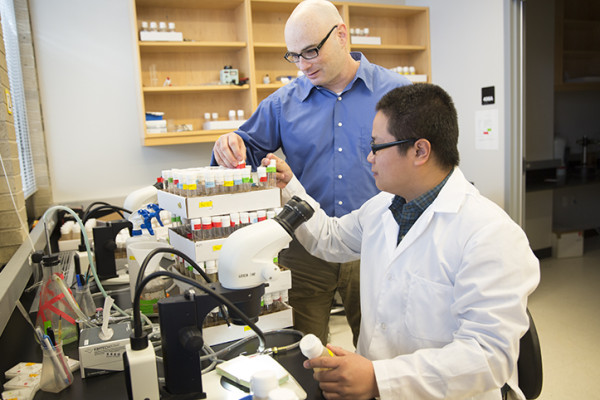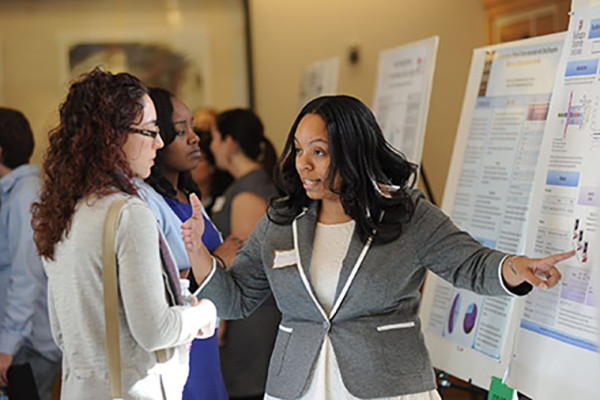Investigational drug evaluated in newborns to treat rare disorder
Children with a rare genetic disorder that causes missing and malformed teeth, sparse hair and the inability to perspire are born without a protein thought to be key to such development. A clinical trial now underway at the School of Medicine aims to see if the void can be filled with a replacement protein. Shown are Sarah and Robert Yaroch and their son Andrew, who is participating in the trial.
Gut bacteria can cause life-threatening infections in preterm babies
Babies born prematurely are surviving in increasing numbers, but many withstand complications of early birth only to suffer late-onset sepsis — life-threatening bloodstream infections that strike after infants reach 72 hours of age. The causes of late-onset sepsis have not been clear. But now, researchers at the School of Medicine led by Phillip I. Tarr, MD, and Barbara B. Warner, MD, have discovered that preterm babies’ guts harbor infectious microbes that can cause this condition.
Colditz to be honored for cancer prevention efforts
Graham Colditz, MD, DrPH, a disease-prevention expert at Siteman Cancer Center at Barnes-Jewish Hospital and Washington University School of Medicine in St. Louis, will receive the 2014 American Society of Clinical Oncology (ASCO)–American Cancer Society Award.
A novel mechanism for fast regulation of gene expression
Yehuda Ben-Shahar and his team at Washington University in St. Louis have discovered that some mRNAs have a side job unrelated to making the protein they encode. They act as regulatory molecules as well, preventing other genes from making protein by marking their mRNA molecules for destruction.
Grad, professional students present research while honing communication skills during annual event
Graduate and professional students presented their research during the 19th Annual Graduate Student Research Symposium, held Feb. 22 in Whitaker Hall. Suthatip Jullamon, a law student, explains her research comparing class-action law in Thailand with the U.S.
Washington People: Gammon Earhart
Gammon Earhart, PhD, a professor in the Program in Physical Therapy at the School of Medicine, works to restore movement to patients with Parkinson’s disease. Arguably her most significant contributions as a researcher have been her studies demonstrating the
benefits of tango dancing on patients with Parkinson’s. Freedom of movement, it turns out, has become a theme of sorts for Earhart — professionally and personally.
Medical Center showcases Campus Renewal plans
Washington University Medical Center is sharing a first look at its future landscape with renderings of the new Barnes-Jewish Hospital north campus tower and St. Louis Children’s Hospital expansion. The first phase of the Campus Renewal Project includes an expansion of Siteman Cancer Center, surgical programs, diagnostics and services for women and infants.
Imbalanced hearing is more than a mild disability
Asymmetric hearing is a difference between the two ears’ ability to detect and process sound. New studies indicate that people with asymmetric hearing experience greater communication difficulties than previously assumed. Researchers led by Jill B. Firszt, PhD, have received a $3 million grant from the National Institutes of Health (NIH) to study the effects of asymmetric hearing loss in adults and children.
Global conference focus: maternal and child health, infections in animals that threaten humans
On March 28, renowned researchers from around the globe will gather in St. Louis to discuss maternal and child health and infections in animals that threaten humans. These topics will be highlighted at the second annual conference of the Washington University Center for Global Health and Infectious Disease.
Research aims to improve repair of rotator cuff injuries
With a five-year, $3.1 million grant from the National Institutes of Health, Washington University orthopedic researchers and engineers are working to enhance rotator cuff repair surgery.
Older Stories


